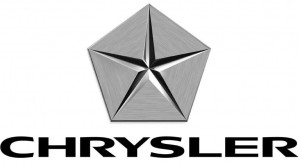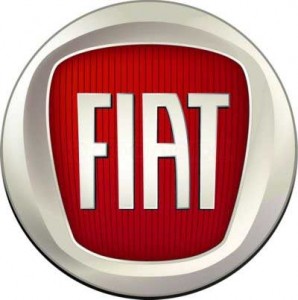
Chrysler turns to the Italians for salvation
The perennially-troubled Chrysler LLC will form a new “global strategic alliance” with the Italian automaker that often has words like “weak,” and “troubled,,” associated with its own name, Fiat s.P.a. Barring problems with federal overseers, who must review the proposed deal – and give a sign-off on Chrysler’s business plan – the two automakers’ alliance could come together in April.
The announcement, which TheDetroitBureau.com first reported on yesterday, comes nearly 20 years after Chrysler and Fiat called off a proposed, trans-Atlantic merger. The new deal will be significantly less far-reaching in scope, though it could still play a critical role in determining the companies’ long-term viability, according to industry observers.
The proposed deal, said a press release, “would provide Chrysler with access to competitive, fuel-efficient vehicle platforms, powertrain, and components to be produced at Chrysler manufacturing sites. Fiat would also provide distribution capabilities in key growth markets, as well as substantial cost savings opportunities” stemming, among other things, through increased economies of scale.
One of the more telling comments in the release, which seems to underscore just had badly understaffed Chrysler has become as it has been forced to pare back to survive, notes that, “Fiat would provide management services supporting Chrysler’s submission of a viability plan to the U.S. Treasury as required.”
On life support
Last month, after a long and embarrassing slog, Chrysler and General Motors finally received the federal aid they insisted they would need to survive into 2009. In the former maker’s case, that came to $4 billion in loans. But like GM, Chrysler must still lock down the government assistance by submitting an acceptable, long-term business plan by the end of March. It’s a “good guess,” said Chrysler spokeswoman Shawn Morgan, that this is the reason the proposed alliance with Fiat won’t be formalized until April, at the earliest.
While Chrysler is on life-support, Fiat has shown a remarkable turnaround since the early days of the new Millennium, when it was given very little chance of surviving. Ironically, the multi-billion-dollar payoff the Italian maker got, when another alliance with GM collapsed, helped it squeak through and then implement a dramatic turnaround plan.
While Fiat may be the healthier of the two new partners, it does have issues it needs to address. According to analyst Jim Hall, of 2953 Analytics, it is the smallest and weakest of the major global makers, and it could use Chrysler’s assistance in a number of ways.

Fiat longs to return to the U.S.
For one thing, the proposed alliance will be “critical to the re-launch of Alfa-Romeo in the United States,“ said Hall. Both Fiat and its upscale marque pulled out of the U.S. in the 1980s, and have regretted that move ever since. The Italian automaker has been plotting a return for Alfa ever since, but a series of tries have failed, including previous efforts partnering with both Chrysler and GM. Late last year, Alfa tried again, this time importing less than 100 of the limited-edition 8C supercar.
Details are unclear, though it seems likely, according to analyst Hall, that Chrysler’s vast distribution network would be involved. Currently, the 8C is being sold through Maserati showrooms. That brand, like the super-premium Ferrari, is also owned by Fiat.
Both Fiat and Chrysler would like to expand their operations in emerging markets, from Latin America to Russia to India to China, so the alliance will likely encourage a team effort. Hall suggests it will also permit a wider array of sourcing options. Fiat, for one thing, might use the U.S. to produce diesels and other powertrains for its European plants to take advantage of lopsided exchange rates.
Alliance, not acquisition
The announcement of the alliance – which some observers are comparing to the Euro-Asian partnership between Renault and Nissan – comes as a surprise to those who thought Chrysler’s private equity parent, Cerberus Capital Management, was putting the entire company on the block. Indeed, top officials, including Chrysler CEO Bob Nardelli, had said repeatedly that was the preferred route – pointing to existing partnerships with Volkswagen and Nissan.
Chrysler builds a version of its popular minivans for VW, and will supply Nissan with a replacement for its slow-selling Titan pickup. The Japanese maker, meanwhile, has been supplying a small car for Chrysler’s Latin American dealers, and will soon add a small car, to be called the Dodge Hornet, for sale in North America.
There are some financial strings being tied up as part of the new alliance. The Chrysler press notes that, “Fiat would receive an initial 35 percent equity interest in Chrysler. The alliance does not contemplate that Fiat would make a cash investment in Chrysler or commit to funding Chrysler in the future.”
Nurturing an alliance is a tricky process, according to various industry observers. Unlike a merger or acquisition, the partners remain effectively separate entities, with their own goals and corporate aspirations. The Renault/Nissan venture has generally been considered a success, while the short-lived alliance between GM and Fiat was a fiasco. Only a small powertrain operation remains in place.
Ironically, that means that Chrysler will have expanded ties with GM, which made a failed attempt to purchase its smaller American rival, last year. For the moment, at least, analyst Hall believes Chrysler will be able to maintain its ties to VW and Nissan, even with the launch of the Fiat relationship.
Deja vu all over again
As TheDetroitBureau noted yesterday, a deal between Fiat and Chrysler brings with it a sense of déjà vu. The two came a hair’s breadth away from merging, 20 years ago, and the collapse of that effort triggered a series of repercussions just coming full circle.
Blamed by then-Chrysler CEO Lee Iacocca for scuttling the deal, former Chrysler President Bob Lutz was sidetracked, and an outsider was brought in as Iacocca’s successor. In turn, Bob Eaton, fearing for Chrysler’s health, decided to create a “merger of equals” with Germany’s Daimler-Benz AG. That lopsided arrangement melted down, and in 2007, Chrysler was sold off to Cerberus – which actually got an estimated $700 million payout from the new Daimler AG to take Chrysler off its hands. The stripped down American automaker has been struggling ever since, and is now putting much of its hopes for the future on the shoulders of Fiat.
